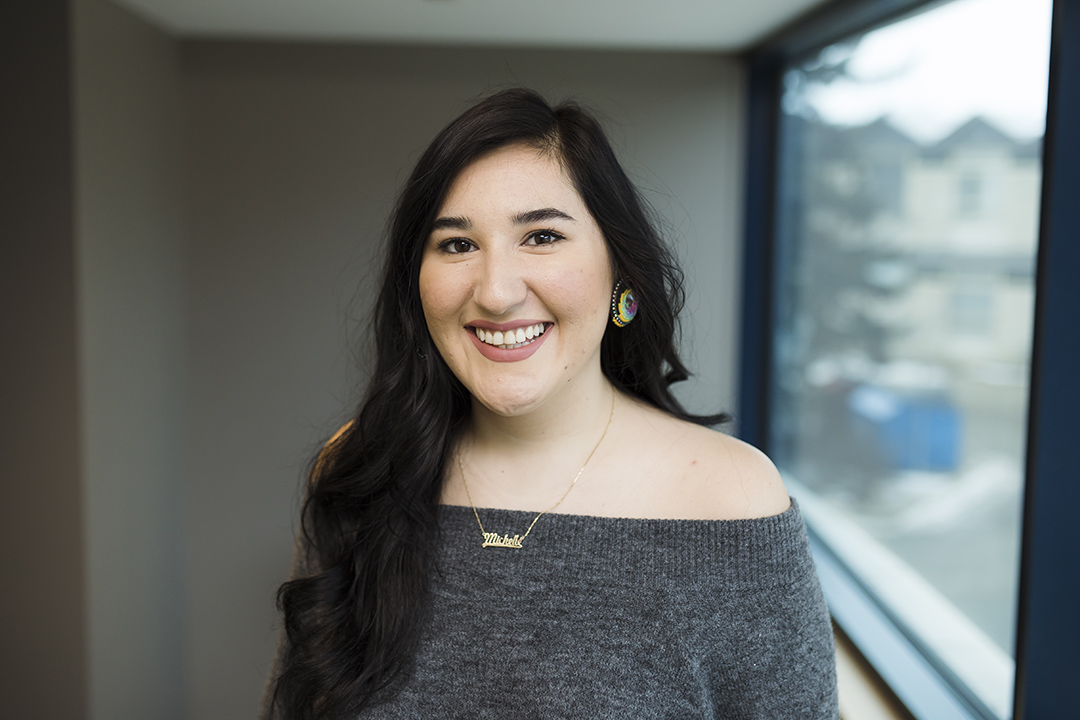
Indigenous Studies student research aims to document environmental health issues in Indigenous communities
Michelle Zinck has a community-minded approach to her studies.
By John ShellingZinck, a Dënë woman from Fond Du Lac Dënësułinë First Nation, is interested in Indigenous feminism, Indigenous food sovereignty and revitalizing traditional knowledge systems. She will be receiving an award for academic excellence at this year’s Indigenous Student Achievement Awards (ISAA).
On Feb. 7, Indigenous students from across the University of Saskatchewan (USask) will be honoured at a ceremony to recognize their academic excellence, leadership, research endeavours or community engagement.
The ISAA is part of Indigenous Achievement Week (IAW) which celebrates the successes and contributions of Métis, First Nations and Inuit students, staff and faculty. The festivities include a public art project, speakers and celebrations in various locations across campus.
We asked Zinck, a fourth-year student in the Indigenous Studies department, a few questions about her time at USask and what motivates her.
Why did you choose Indigenous Studies?
I chose to study Indigenous Studies because I wanted to learn more about the history of Indigenous Peoples, and how the violent legacy of colonization continues to impact Indigenous Peoples. I also wanted to learn how to conduct meaningful research with Indigenous communities that is based on collaborative and community-based initiatives that can help address issues of health and well-being that are prevalent in our communities.
What advice would you give to a first-year indigenous student?
I would tell a first-year Indigenous student to get involved with the campus community, especially with other Indigenous students. School can be tough, so it is important to have a community that you can turn to for support.
Has there been someone in your life who has inspired you to get to where you are today?
My mom, Rose. She keeps me grounded, and her hard work, strength and resiliency empowers me to pursue what I want in life.
You plan to pursue a Master’s degree to study how Dënë women are being disproportionately affected by environmental violence in northern Saskatchewan. Can you explain what environmental violence is and what how it is affecting Dënë women?
The report, Violence on the Land: Violence on our Bodies defines environmental violence as " the disproportionate and often devastating impacts that the conscious and deliberate proliferation of environmental toxins and industrial development (including extraction, production, export, and release) have on Indigenous women, children and future generations, without regard from States or corporations for their severe and ongoing harm." For over seven decades uranium mining practices have developed in northern Saskatchewan, and I believe that Indigenous women, children and communities are experiencing the effects of environmental degradation that are manifesting in issues of health and well-being. For this reason, I want to conduct environmental health research to formally document how Indigenous women, children and communities are chronically and generationally experiencing problems with health and well-being.
This year’s theme of the Indigenous Achievement Week is Powerful Voices. If there is one thing you can use your voice for in this moment what would it be for?
I want to let all the Indigenous students know that you belong here. Trust in what you want to do, and persevere; the resiliency of your ancestors will guide you and give you the strength you need along your academic journey.
Article re-posted on .
View original article.

